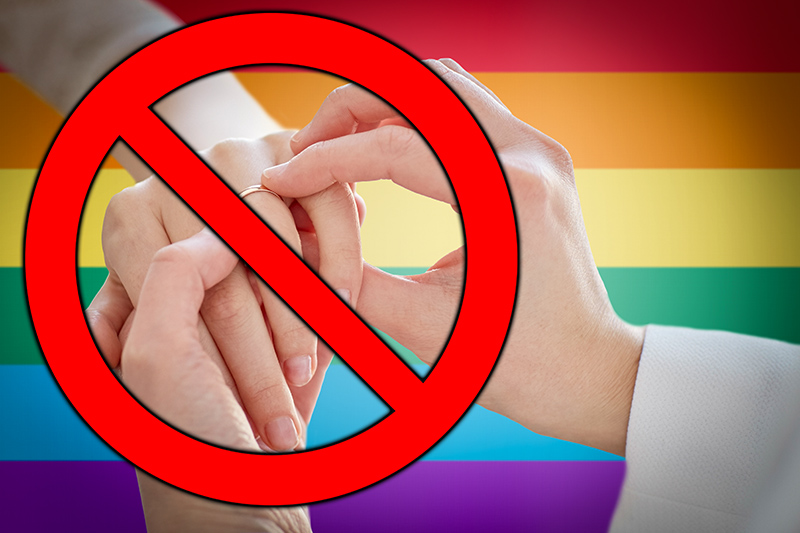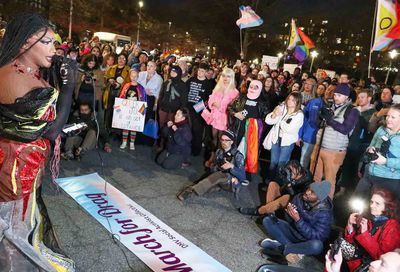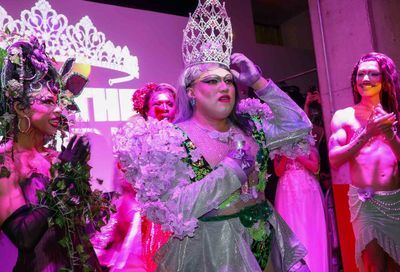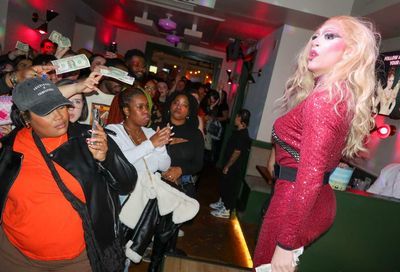More than 200 businesses file brief with Supreme Court in support of fired LGBTQ workers
Corporations argue that uniform laws prohibiting anti-LGBTQ discrimination are beneficial to their success

More than 200 major corporations have signed onto a “friend of the court” brief filed with the U.S. Supreme Court in support of three LGBTQ employees who were fired because of their sexual orientation or gender identity.
The brief was authored by the Los Angeles-based law firm Quinn Emanuel Urquhart & Sullivan, LLP, and its signatories were organized by a coalition of LGBTQ civil rights organizations, including the Human Rights Campaign, Lambda Legal, Out Leadership, Out and Equal, and Freedom for All Americans.
The companies argue in the brief that the Supreme Court should rule that LGBTQ people are protected from discrimination under existing civil rights laws outlawing discrimination based on sex.
More specifically, they argue that a uniform law prohibiting anti-LGBTQ discrimination would be beneficial for businesses, allowing them attract and retain top talent, improve business efficiency, and ensuring companies don’t incur significant costs by having to replace productive workers and retrain their replacements.
One study cited in the brief notes that companies lose, on average, $8,800 for each LGBTQ employee that leaves a state without LGBTQ protections or a job with a hostile workplace environment because of discrimination on the job.
“At this critical moment in the fight for LGBTQ equality, these leading businesses are sending a clear message to the Supreme Court that LGBTQ people should, like their fellow Americans, continues to be protected from discrimination,” Jay Brown, Senior Vice President for Programs, Research and Training for the HRC Foundation, said in a statement. “These employers know firsthand that protecting the LGBTQ community is both good for business and the right thing to do.”
The 206 companies who have signed onto the brief — twice as many as in previous LGBTQ nondiscrimination briefs — represent roughly 7.4 million employees from a wide variety of industries, with more than $5 trillion in revenue
Some of those companies include: Accenture, Airbnb, Inc., American Express, Aramark, Bank of America, Ben & Jerry’s Homemade, Inc., Cigna, Cisco Systems, Inc., Citigroup, Expedia Group, Facebook, General Motors, GlaxoSmithKline LLC, Goldman Sachs, Google, IKEA North America Services, Kickstarter, LinkedIn, Macy’s, Mass Mutual, PayPal, Pfizer, Salesforce, Starbucks Corporation, The Coca-Cola Company, The Walt Disney Company, Under Armour, and Zillow Group.
“When employees can safely bring their whole selves to the workplace, they do better work and that leads to success,” Omar Gonzalez-Pagan, a senior attorney at Lambda Legal, said in a statement. “And many of the nation’s top businesses know that. We are thrilled by the unprecedented support from the business community that recognizes how discrimination against LGBT people is bad for business and violates the Civil Rights Act. It sends a powerful message to their employees, customers and other business leaders that they will stand up for dignity and equality for LGBT people.”
“This brief exposes the lie that affirming Civil Rights protections for LGBTQ Americans is somehow anti-business,” Erin Uritus, CEO of Out & Equal Workplace Advocates, said in a statement. “The opposite is true. Equality is good for businesses and employees. And consumers — who are increasingly savvy and intentional about their spending power — are demanding equality. I’m inspired by all of the leaders who have joined with us today in submitting this brief. The Civil Rights Act needs to be affirmed in a way that serves and protects all Americans.”
Many of the organizations pushing the brief note that the Supreme Court’s decision to take up two cases centered around LGBTQ workplace discrimination will result in one of its most consequential decisions regarding the status of LGBTQ rights since the court’s decision to legalize marriage equality in the 2015 Obergefell v. Hodges case.

While federal courts have held that discrimination against LGBTQ people violates prohibitions on sex discrimination contained in Title VII of the Civil Rights Act, the Supreme Court could break with that interpretation, and instead hold that “sex discrimination” only applies to instances where someone is discriminated against because of their biological sex at birth.
The high court will hear arguments on Tuesday, Oct. 8 in the case of Altitude Express v. Zarda, in which the 2nd U.S. Circuit Court of Appeals found that a skydiving company had sexually discriminated against one of its instructors, the now-deceased Donald Zarda, after it discovered he was gay. That case has been consolidated with a case out of Georgia, Bostock v. Clayton County, in which Gerlad Lynn Bostock, a child welfare services coordinator for Clayton County, claimed he was wrongly fired because of his sexual orientation. At issue is whether employers’ decision to discriminate against openly gay workers like Zarda and Bostock is prohibited under Title VII.
The other case, also scheduled for Oct. 8, involves Aimee Stephens, a transgender woman fired from her job at a funeral parlor after she informed her employer of her intent to transition and conform to female dress code standards. The high court will determine whether the 6th Circuit Court of Appeals rightly decided that the funeral home violated Stephens’ rights under Title VII when it fired her for being transgender and for failing to conform to sex stereotypes.
“Today, a multitude of companies representing sectors from all walks of American life have sent the unequivocal message that they believe in dignity and respect for all their employees and customers,” Kasey Suffredini, president of strategy at Freedom for All Americans, said of the outpouring of support from corporate America for the principles outlined in the brief. “No one who is well-qualified, talented, and hardworking should have to worry that they cannot be their true selves for fear of being fired or denied a job or promotion. That’s why a majority of Americans from all walks of life support these protections.”
“We’re thrilled to see so many of our nation’s most innovative and profitable businesses coming together to say that LGBT+ Americans are, and should continue to be, protected from discrimination,” Todd Sears, CEO of Out Leadership, added. “As our recently issued State LGBT+ Business Climate Index shows, the laws protecting LGBT+ people from discrimination vary wildly between — and often within — states. This patchwork approach prevents LGBT+ people from participating fully in the economy and from reaching their highest potential, and it’s past time for the Supreme Court to make nondiscrimination protections the law of the land.”
Support Metro Weekly’s Journalism
These are challenging times for news organizations. And yet it’s crucial we stay active and provide vital resources and information to both our local readers and the world. So won’t you please take a moment and consider supporting Metro Weekly with a membership? For as little as $5 a month, you can help ensure Metro Weekly magazine and MetroWeekly.com remain free, viable resources as we provide the best, most diverse, culturally-resonant LGBTQ coverage in both the D.C. region and around the world. Memberships come with exclusive perks and discounts, your own personal digital delivery of each week’s magazine (and an archive), access to our Member's Lounge when it launches this fall, and exclusive members-only items like Metro Weekly Membership Mugs and Tote Bags! Check out all our membership levels here and please join us today!

























You must be logged in to post a comment.